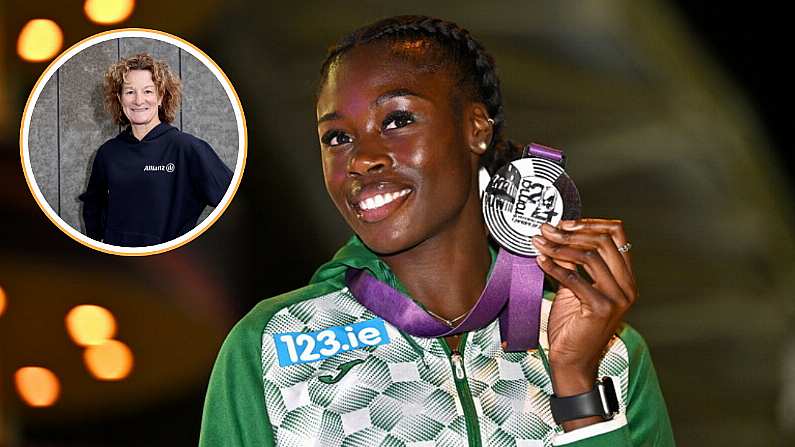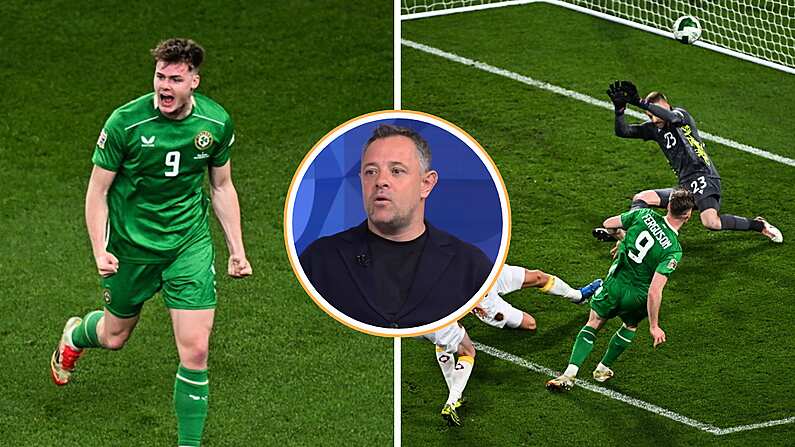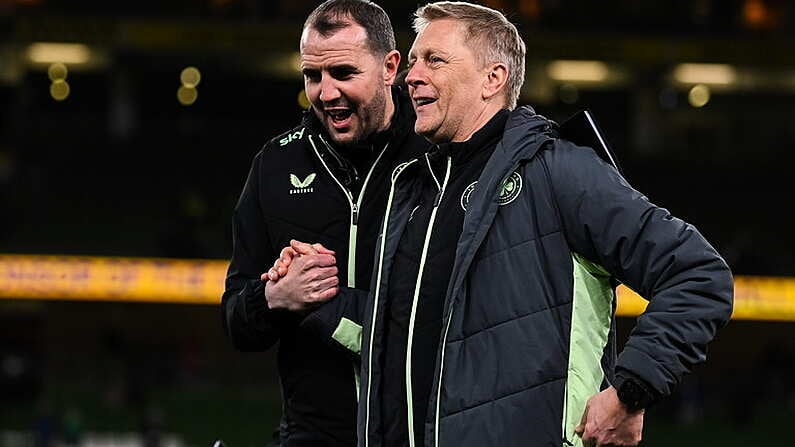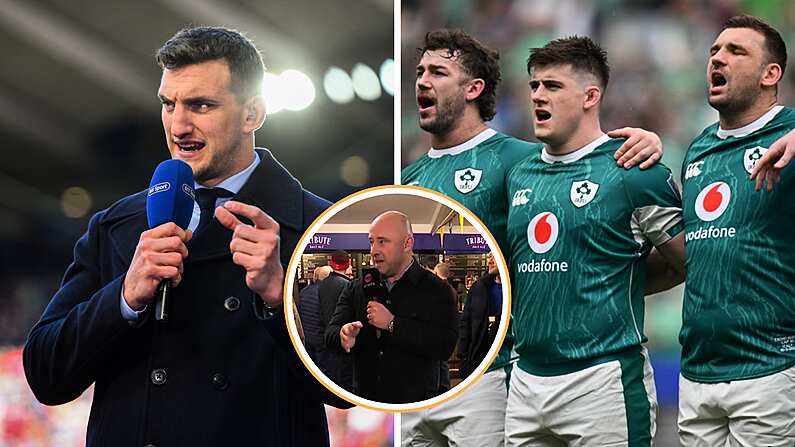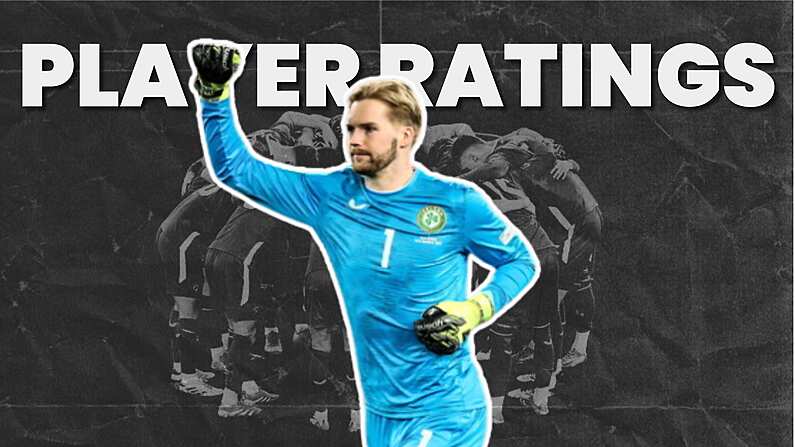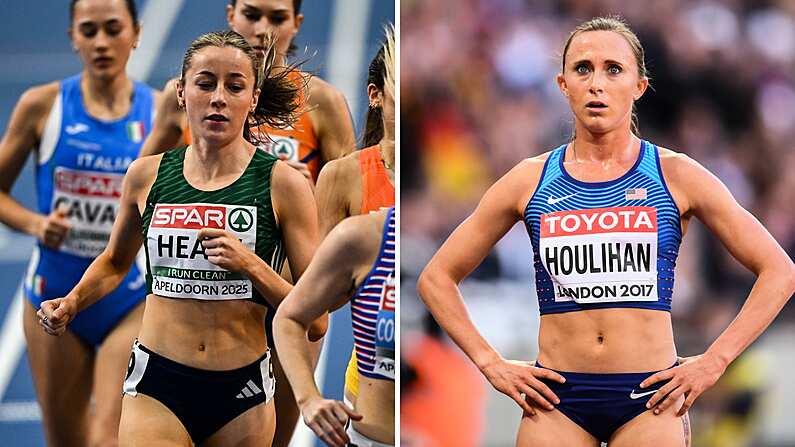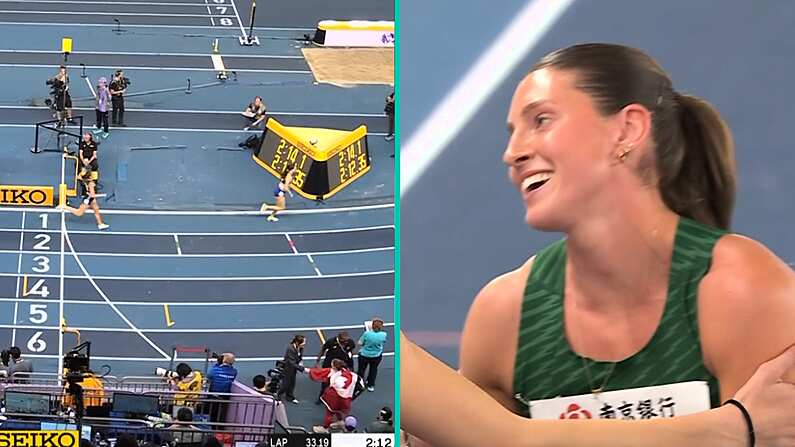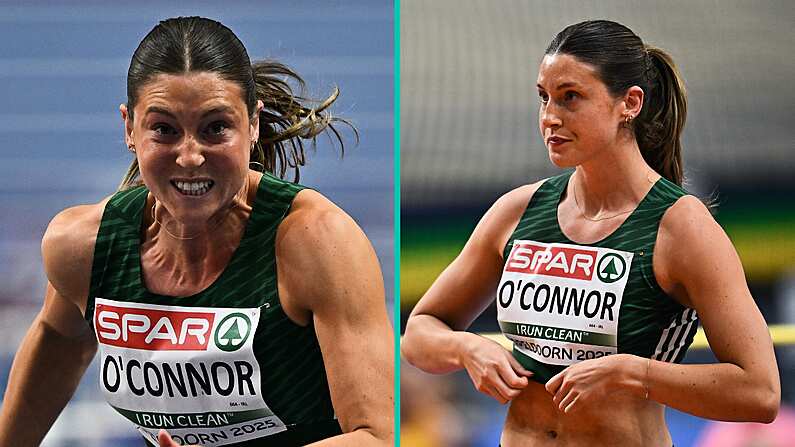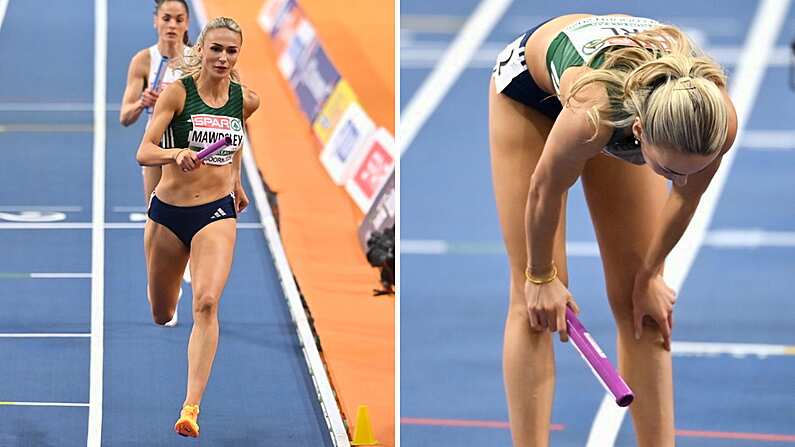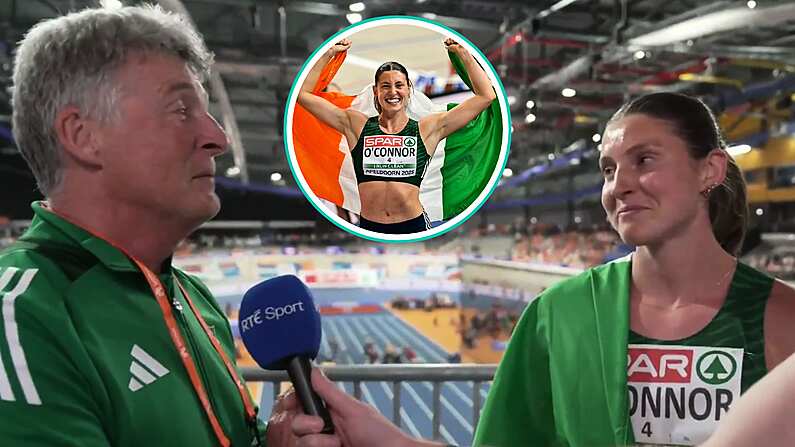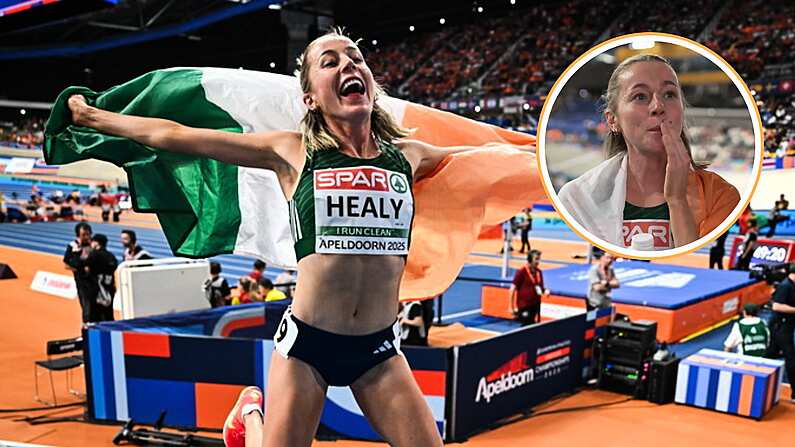Ireland experienced an incredble level of success on track at the European Championships in Rome earlier this month, with medals coming from the 4x400m mixed relay team, 4x400m women’s relay team and the individual 400m final.
The common denominator among these performances was 21-year-old Rhasidat Adeleke, who finished 2nd in the 400m final and was a crucial element in both relay teams also.
Adeleke had dominated junior categories throughout the years with her speed, and it was seen as only a matter of time before she excelled at a senior level, with exceptional performances in Rome and high expectations going into the Olympics in Pairs this summer.
However, it came to light after the championships the extent to which Adeleke had been upset by racist abuse on social media. The abuse was widely condemned by figures such as Taoiseach Simon Harris.
Sonia O’Sullivan’s response to the racial abuse Adeleke received
Speaking at the launch of Allianz’s “Stop The Drop” campaign, Olympic silver medalist and Irish distance runner Sonia O’Sullivan gave her thoughts on the abuse aimed at Adeleke, and how, as an athlete, making sure to block it out as much as possible is vital.
When you have any kind of negative comments online, whether its racial abuse or anything like that that can detract from what an athlete is trying to do - it’s a distraction that you need to be able to block out an put aside.
So I think for Rhasidat, I think she obviously has moved on, and she’s realised that yeah, this is happening, but it’s not something I need to focus on.
She is respected as a great athlete for Ireland, she is a central part of the Irish team, and she’s the heart and soul of Irish athletics right now.
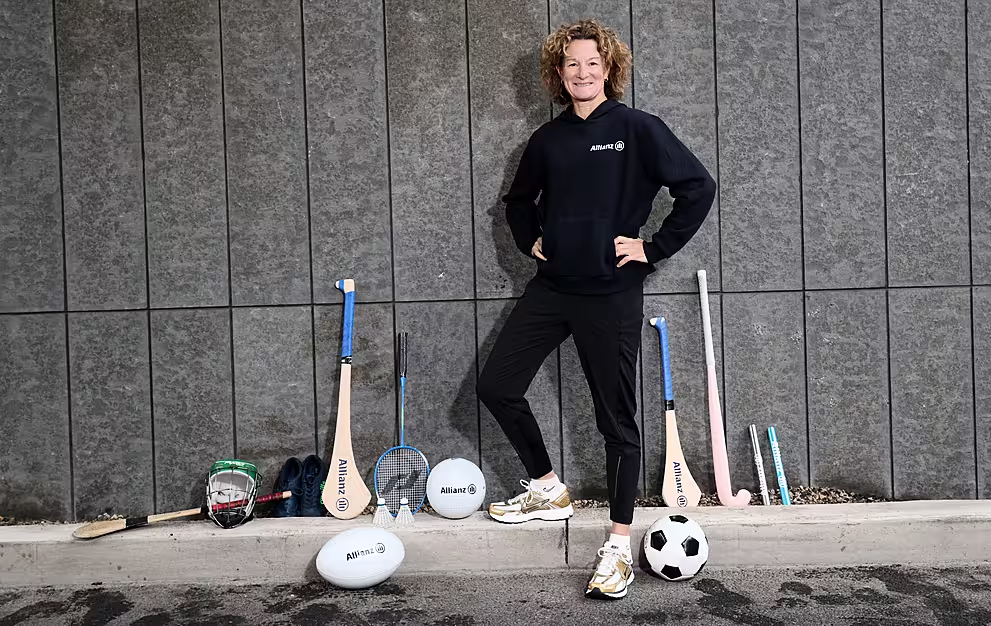
Wednesday, 19th June 2024: Pictured is Allianz ambassador and Irish Olympic Silver medallist, Sonia O’Sullivan, as Allianz launch their new “Stop The Drop” research. The Stop The Drop campaign sheds critical light on the decline in sports participation among Irish children, particularly during the pivotal transition from primary to secondary school. The #StopTheDrop research report can be found at www.allianz.ie/stopthedrop
Relay or individual success?
The ever-growing issue of individual versus team events at Paris 2024 was another issue O’Sullivan spoke about, particularly in relation to athletes such as Adeleke and Sharlene Mawdsley, who both made the final of the 400m in Rome, with Adeleke earning a silver medal in that race.
Adeleke will have a tricky decision to make as the 4x400 mixed relay and 400m individual heats are right on top of each other. The conflict of having a shot at a medal in relay events, and yet focusing on and remaining fresh for individual events is a difficult balance. O’Sullivan explained how no decisions on which to prioritise will be made prior to the event, and that the situation will be assessed by the athletes’ coaches.
As a country, as a sport, does the mixed relay become more important than the individual for some people, and less important for others, how do you balance that?
When you have to weigh up where the medals are going to come from, and I mean it’s a huge opportunity for an Olympic medal in that relay team, but do you give that opportunity up in the hope that we get an individual medal?
It’s a difficult thing because Athletics Ireland are not making that decision - it’s the individual athletes’ coaches who are the ones who are going to make the decision.
O’Sullivan highlighted Adeleke’s commitment to the sport, and how that proved key in her development and subsequent successes as she rose through the ranks in Irish athletics before making the move to the US.
She’s taken all the steps through all the stages that young athletes need to take to be where she is right now.
I think that’s a great message for what we are trying to promote here today with the Allianz “Stop The Drop”, is that to be a medal winning athlete on the European stage, on the world stage, it doesn’t just happen overnight.
It’s something you have to work through from a young age, to encourage young athletes, you know, that this doesn’t happen instantly but you’ve got to work hard, you’ve got to maintain commitment.

